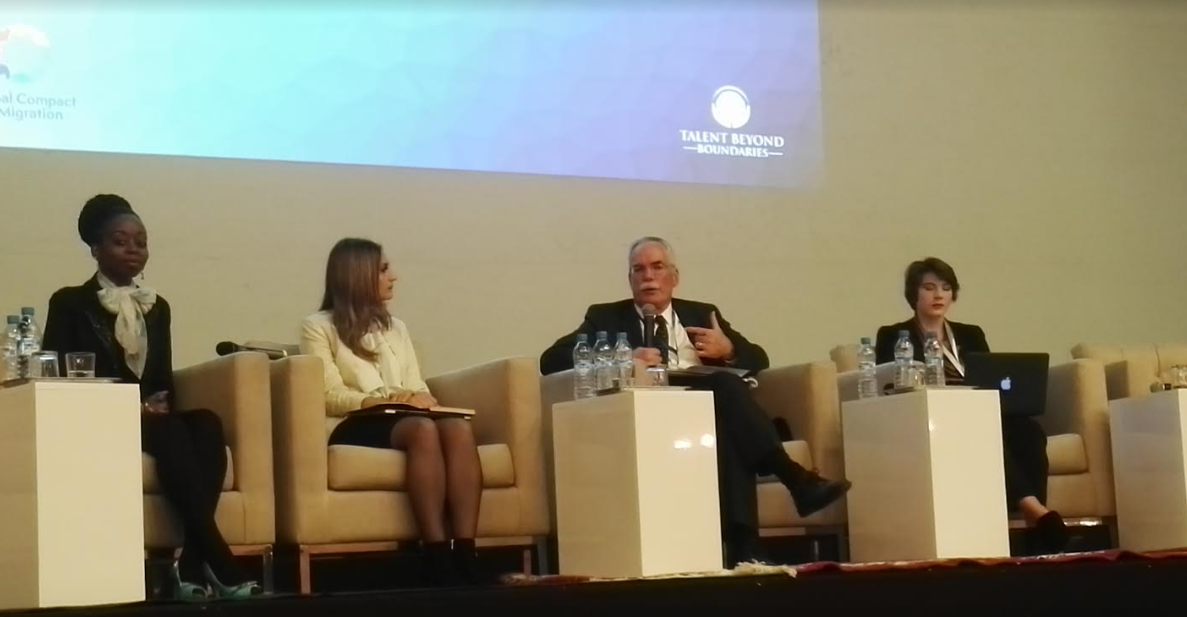Hortense Minishi (far left), RefugePoint’s Senior Resettlement Officer, participated on a panel at a side event at the Conference to Adopt the Global Compact for Migration in Marrakesh, Morocco on December 9th. Hortense interacted directly with the Talent Beyond Boundaries colleagues, including (Gary Slaiman (second from right), Senior Advisor TBB, Noura Ismail, Lebanon Country Manager TBB and Rachel Lawrie, Global Outreach Manger TBB.
On December 9, Hortense Minishi, RefugePoint’s Senior Resettlement Officer, participated on a panel at a side event at the Conference to Adopt the Global Compact for Migration in Marrakesh, Morocco. Hortense spoke about her role in the Economic Mobility Pathways Project (EMPP) in Nairobi, Kenya. The EMPP is a one-year pilot project, run jointly by RefugePoint and Talent Beyond Boundaries (TBB) under the direction of Immigration, Refugees and Citizenship Canada (IRCC) and in cooperation with the UN Refugee Agency (UNHCR). The project aims to initially help a small number of refugees in high-demand occupations to access work-based visas to Canada, connecting them to Canadian employers and putting them on a path to permanent residency. As this article about the project in The Star points out, “The majority of the refugees in the talent pool have backgrounds in engineering, healthcare, IT, teaching, accounting and university education.”
The EMPP aims to document the barriers that displaced people face when trying to access labor mobility to Canada. It is expected that the outcomes of the project will be used to inform policy considerations in Canada and other countries wishing to pilot similar projects, so that ultimately larger numbers of refugees may benefit in the future.
Hortense spoke about the need for innovative complementary pathways to traditional resettlement and highlighted the talent pool that exists among displaced populations in Kenya. She also addressed barriers that refugees face to accessing the existing economic migration programs, as well as some of the practical steps that states and partner NGOs will need to consider when undertaking such a project.
The panel, hosted by TBB, was part of a side event called, ‘Encouraging Regular Migration by Linking Displaced Populations to Global Skills Gaps’. More than 135 UN Member states were represented at the conference.
